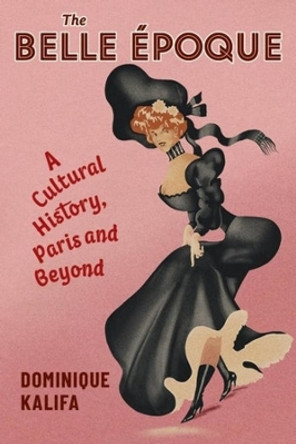Description
This book traces the making-and the imagining-of the Belle Epoque to reveal how and why it became a cultural myth. Dominique Kalifa lifts the veil on a period shrouded in nostalgia, explaining the century-long need to continuously reinvent and even sanctify this moment. He sifts through images handed down in memoirs and reminiscences, literature and film, art and history to explore the many facets of the era, including its worldwide reception. The Belle Epoque was born in France, but it quickly went global as other countries adopted the concept to write their own histories. In shedding light on how the Belle Epoque has been celebrated and reimagined, Kalifa also offers a nuanced meditation on time, history, and memory.
About the Author
Dominique Kalifa (1957-2020) was professor of history and director of the Center for Nineteenth-Century History at the University of Paris 1 Pantheon-Sorbonne. His books include Vice, Crime, and Poverty: How the Western Imagination Invented the Underworld (Columbia, 2019).
Venita Datta is professor of French at Wellesley College.
Reviews
Dominique Kalifa's "untold" history of the Belle Epoque offers a probing reflection on the concepts through which we structure and give meaning to time and the past. Scholars of memory, nostalgia, and temporality will find much to think about in a book that is at once playful and ambitious. -- Stephane Gerson, author of Disaster Falls: A Family Story
In this important book, Dominique Kalifa convincingly demonstrates that the notion of the Belle Epoque was not constructed in the years that followed the supreme catastrophe of World War I, but rather in the 1950s, during the "Thirty Glorious Years" when the new France emerged. This fascinating study has much to tell Anglophone readers about the France that the British and Americans began to discover in the wake of World War II. -- John Merriman, author of Ballad of the Anarchist Bandits: The Crime Spree That Gripped Belle Epoque Paris
Kalifa masterfully unearths the varied uses to which the term 'Belle Epoque' has been put from the turn of the twentieth century forward. Part historical excavation, part meditation on the historian's craft, this book makes a crucial contribution to the history of this important period and its afterlives. -- Willa Z. Silverman, author of The New Bibliopolis: French Book Collectors and the Culture of Print, 1880-1914
American readers, especially those who came of age after World War II, will quickly call up Toulouse-Lautrec posters on their walls and memories of first touring Paris. Kalifa gives those memories historical footings and explains their origins, providing a useful, informative portrait for scholars and Francophiles alike. * Kirkus Reviews *
An extremely interesting book. * Book Addiction *
His analysis is clear and comprehensible, and it is supported by references that cover a broad spectrum of social and cultural material. This is one of those academic books that wears its learning lightly. * Times Literary Supplement *
A genuinely thought-provoking study. Highly recommended. * Choice *
No matter the context, no one will ever again be able to refer to the Belle Epoque without taking Kalifa's revelations into consideration. The endless intelligence of this book cannot be missed. * American Historical Review *
Awards
Winner of Choice Outstanding Academic Title 2022. Joint winner of Co-Winner, Translation Prize - Nonfiction, French-American Foundation 2022.
Book Information
ISBN 9780231202091
Author Dominique Kalifa
Format Paperback
Page Count 264
Imprint Columbia University Press
Publisher Columbia University Press







